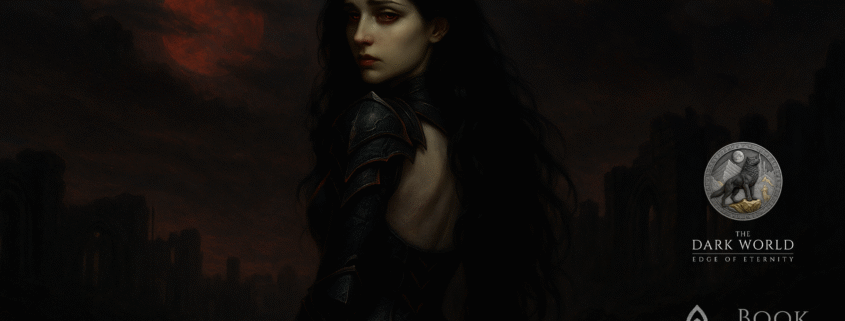Lullaby of Khali’a, “Sleep, My Little Star”
There are songs in The Dark World that were never meant to be heard by crowds, nor shouted across battlefields. Some are whispers, some are confessions, and some are memories that refuse to die. Khali’a’s Lullaby belongs to the last of these.
This piece was written to capture something deeper than terror or war. Khali’a, known in the lore as The Red Widow, is one of the oldest vampires, second only to Jure Grando himself. Her transformation was not glorious or chosen, it was tragedy. She was turned in the shadows of her home, brought into the hunger without understanding it, and in her first night she killed her husband and her daughter. That single night defined centuries of her existence. It became the wound she could never close.
The lullaby comes from the life she lost. Before she was Red Widow, Khali’a was a mother. She had a family, a home, and a voice that comforted rather than cursed. Sleep, My Little Star was the song she once sang to her daughter, a gentle melody of warmth and safety. After the tragedy, those words are soaked in blood and grief. And yet, sometimes, even in the long centuries of undeath, she still hums it. Not to lull a child to sleep, but to remind herself of what she destroyed.
Writing this song was about more than giving Khali’a a theme. It was about giving her humanity back, if only for a few fragile moments. The lyrics are deliberately simple, like a folk lullaby any mother might sing. But behind every word is weight. When she sings of stars, it is not about light, but about distance. When she whispers of angels, it is not about safety, but about the absence of God.
This song is not meant to comfort. It is meant to ache. It is meant to remind that monsters are not born in shadows, they are made when something human is broken beyond repair. Khali’a’s voice, fragile and trembling, is both a prayer and a curse, an echo of love that will never find an answer.
I wrote this piece because Khali’a is not just a monster in the lore of The Dark World. She is tragedy given flesh. And tragedy, I believe, deserves to sing.



